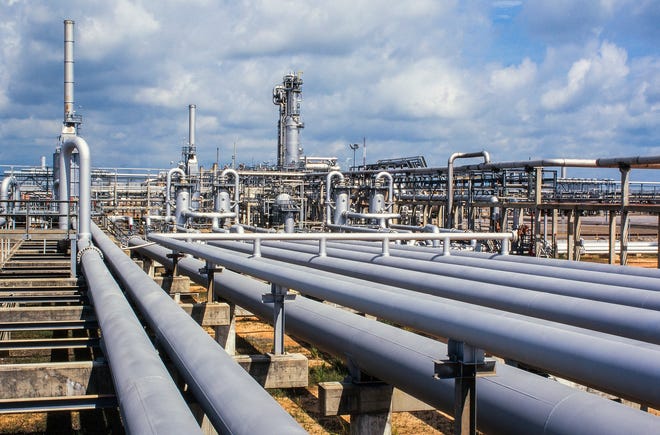The demand for natural gas, coal and oil has created price increases not seen for years, pushing electricity costs in Europe to all-time highs. The supply shortage has several causes, including supply-chain bottlenecks and ambitious targets for reducing carbon emissions. A cold winter will increase demand for these commodities and raise their prices further.
The fossil fuel energy system is the lifeblood of the modern economy. Fossil fuels powered the industrial revolution, pulled millions out of poverty and shaped the modern world. According to the International Energy Agency, more than three-quarters of global energy is currently met by fossil fuels. Non-nuclear renewables supply less than 20% of energy needs. Rory Simington, analyst at Wood Mackenzie, said, “There is a difference between what people perceive happening in energy transition, and what is actually happening.”
The use of fossil fuels comes with a devastating downside. Most scientists believe that the release of carbon dioxide (CO2) from burning fossil fuels is warming our planet faster than anything we have seen in the geological record. They advocate slowing this warming before it changes our world beyond recognition.
The high prices of fossil fuels combined with the shortage of supply could cause countries to vote against further shifting away from fossil fuels at an upcoming United Nations climate summit in Glasgow. The price surge has taken a toll on energy-intensive industrial activity in many parts of the world.
Some economists worry that inflation in the U.S. and European economies will last longer than policymakers currently forecast. This could lead to a speedier-than-expected unwinding of accommodative monetary policies and earlier interest-rate increases than envisioned by central bankers.
Reliance on fossil fuels has tended to fluctuate with economic growth rather than governments’ climate ambitions. European and Asian countries are competing with one another to secure sufficient supplies of fossil fuels. The concern about climate has temporarily taken a back seat.
Prices of oil, natural gas and coal are surging. Oil prices recently hit a seven-year high on the news that OPEC and its allies are sticking with their commitment to only add 400,000 barrels of oil per day. Natural gas prices recently reached record levels in Europe and Asia as these regions struggle to find enough fuel to meet demand. The price of coal has risen fourfold in the past year.
On Wednesday, Russia’s President Vladimir Putin said he was ready to provide natural gas to Europe. There has been a growing crisis in Europe caused by a natural gas shortage. Currently, the inventory of natural gas is far below normal levels heading into the winter months.
The shortage of natural gas favors Russia, which wishes to install a pipeline (Nord Stream 2) linking Russia and Germany. President Biden, who is carrying on the policies of Trump and Obama, opposes the pipeline because it bypasses Ukraine. This undermines Ukraine’s ability to remain politically and economically independent of Russia. Analysts believe that despite the threat of American sanctions, the pipeline will be completed.
Meanwhile, rocketing energy prices and other bottleneck problems are beginning to impact businesses around the globe. Natural gas stocks are alarmingly low around the globe. Many European countries are particularly vulnerable because they mothballed their coal-fired plants. As a consequence, China and Europe are restarting their coal and oil-fed plants. Liquid natural gas plants and tankers exporting LNG from the U.S are very close to capacity.
Most mainstream scientists believe we need to revamp our energy system and significantly reduce CO2 emissions. Reducing humanity’s reliance on fossil fuels requires staggering upfront investments in order to provide uncertain long-term benefits. Until alternative energy sources such as wind power, hydroelectric and solar grow exponentially, fossil fuels will continue to power our industrial age.
Originally published in the Sarasota Herald-Tribune




